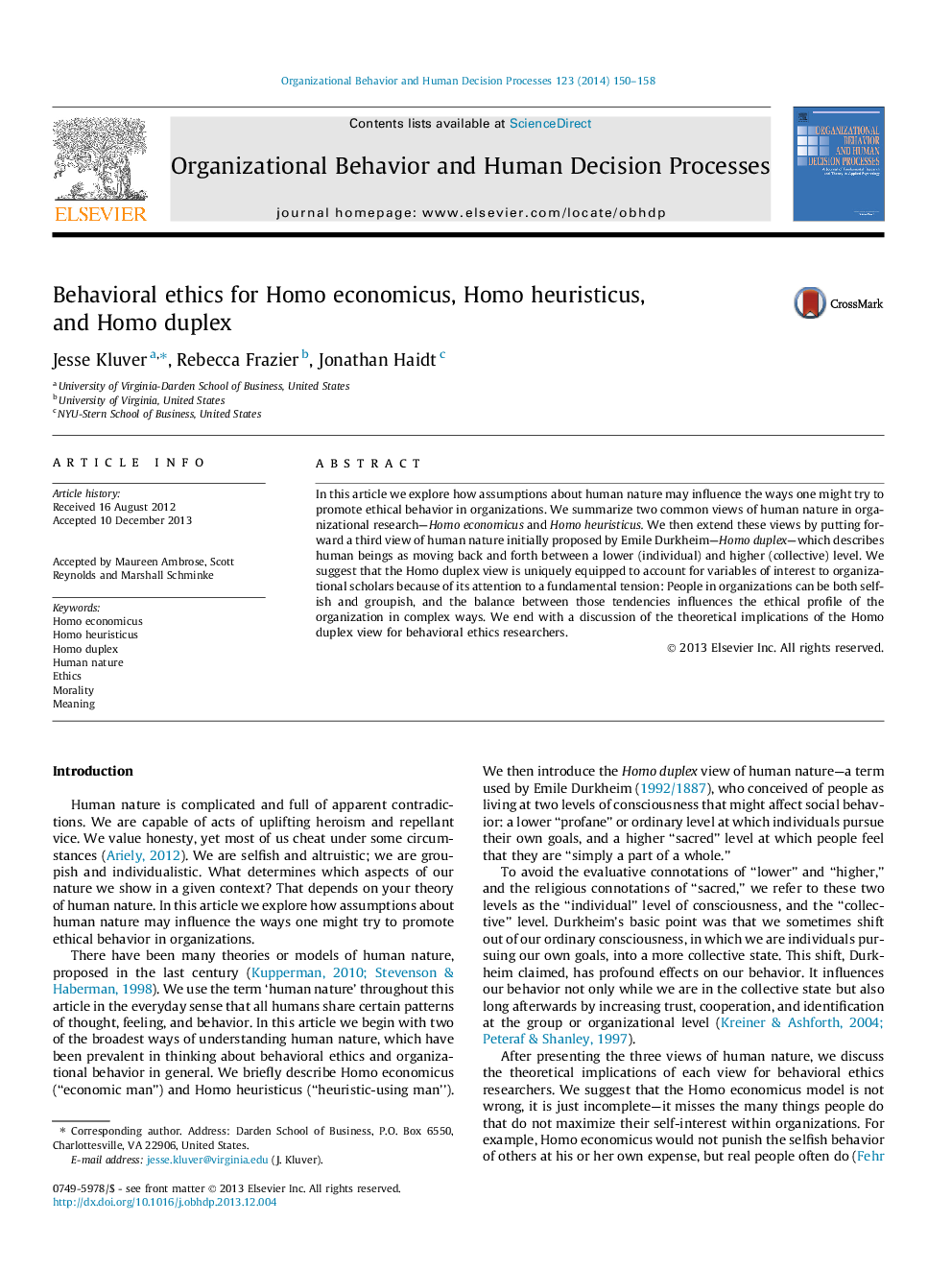| کد مقاله | کد نشریه | سال انتشار | مقاله انگلیسی | نسخه تمام متن |
|---|---|---|---|---|
| 888594 | 913553 | 2014 | 9 صفحه PDF | دانلود رایگان |

• There are three views of human nature in relation to behavioral ethics.
• Most assumptions in behavioral ethics assume the “Homo heuristicus” view.
• We propose a third view of human nature, Homo duplex.
In this article we explore how assumptions about human nature may influence the ways one might try to promote ethical behavior in organizations. We summarize two common views of human nature in organizational research—Homo economicus and Homo heuristicus. We then extend these views by putting forward a third view of human nature initially proposed by Emile Durkheim—Homo duplex—which describes human beings as moving back and forth between a lower (individual) and higher (collective) level. We suggest that the Homo duplex view is uniquely equipped to account for variables of interest to organizational scholars because of its attention to a fundamental tension: People in organizations can be both selfish and groupish, and the balance between those tendencies influences the ethical profile of the organization in complex ways. We end with a discussion of the theoretical implications of the Homo duplex view for behavioral ethics researchers.
Journal: Organizational Behavior and Human Decision Processes - Volume 123, Issue 2, March 2014, Pages 150–158